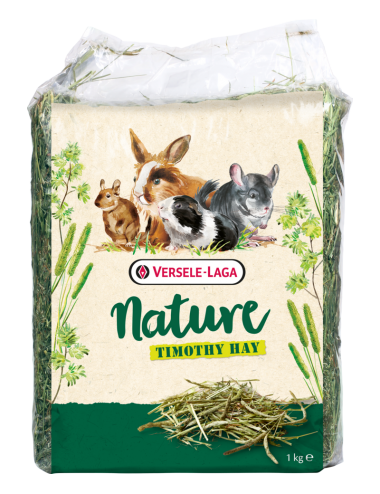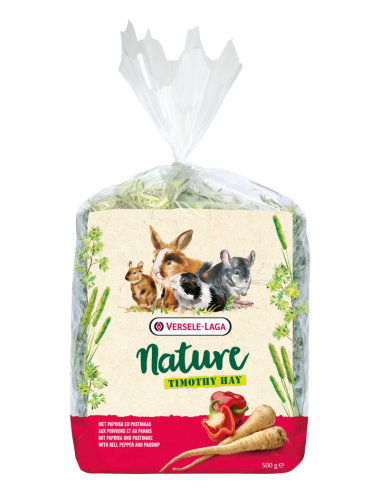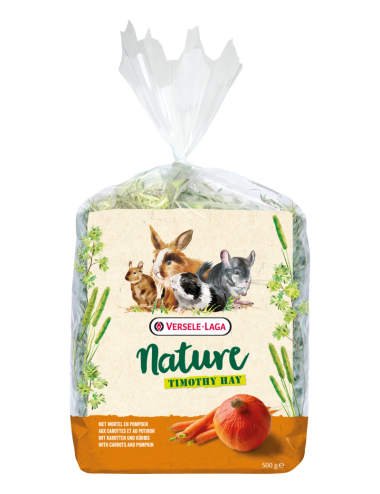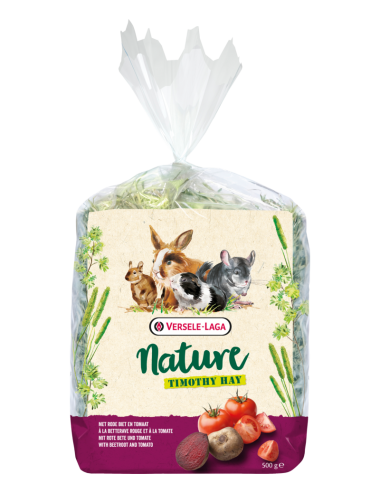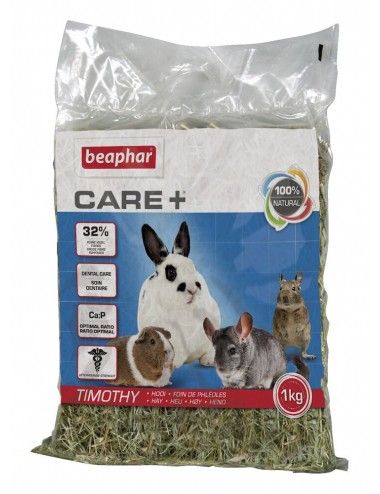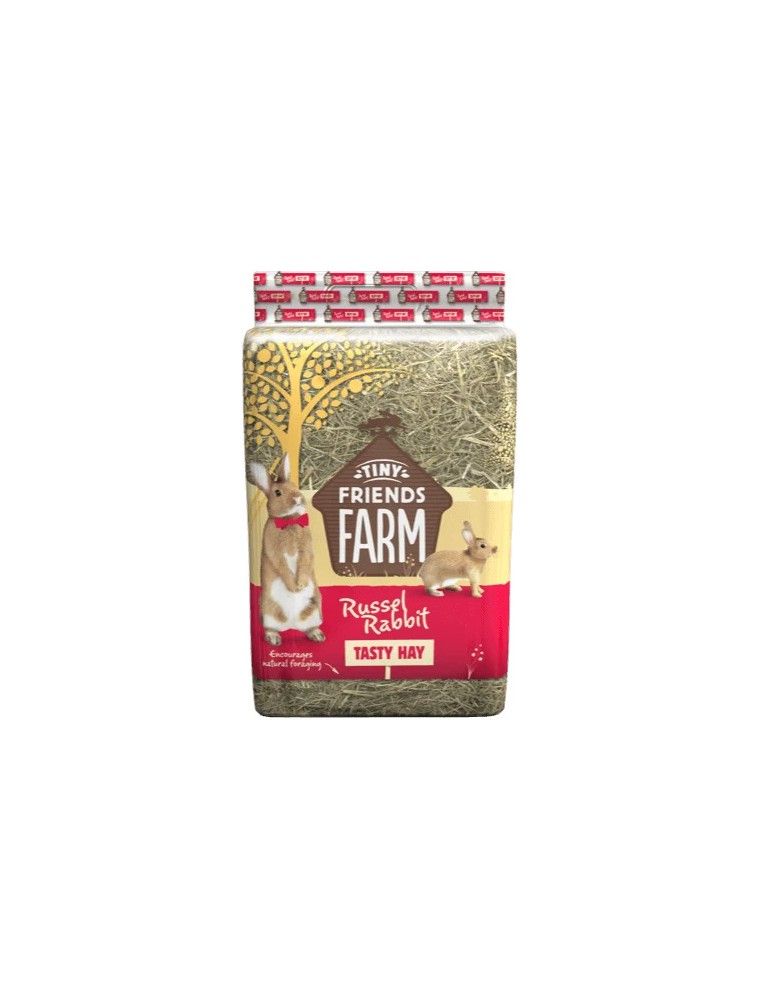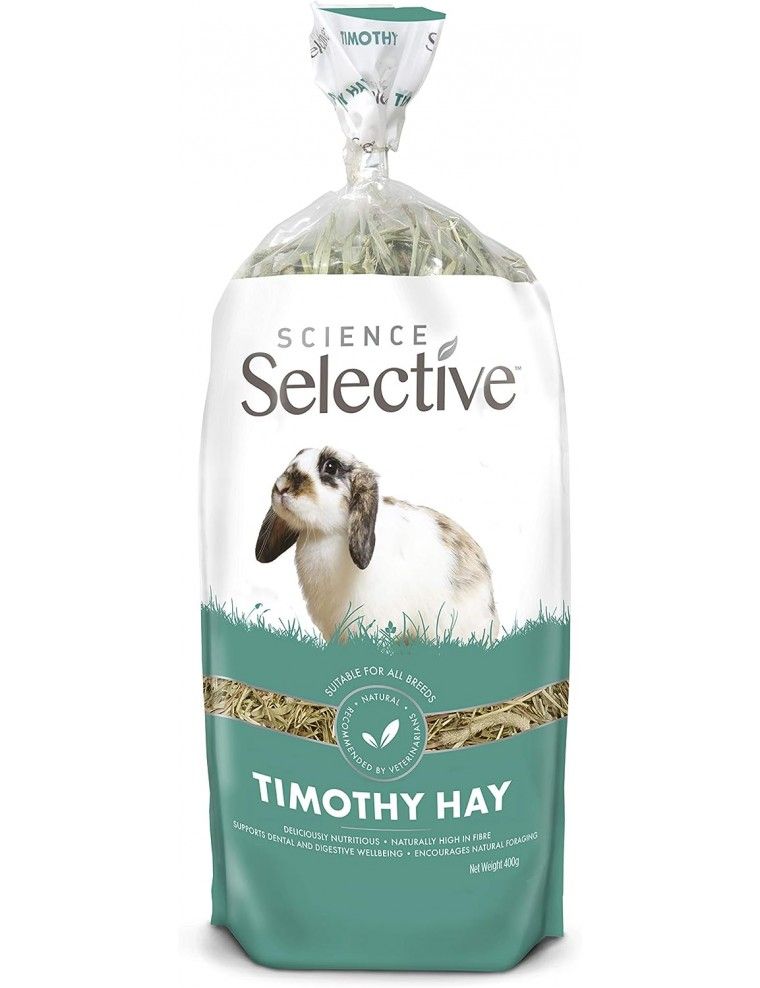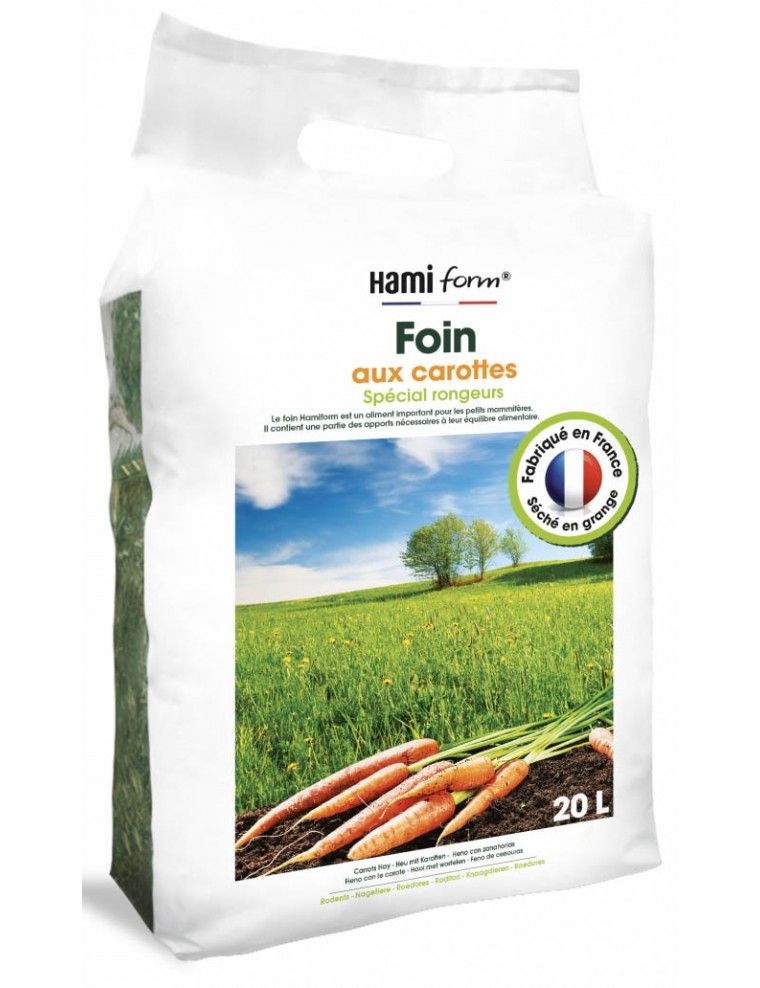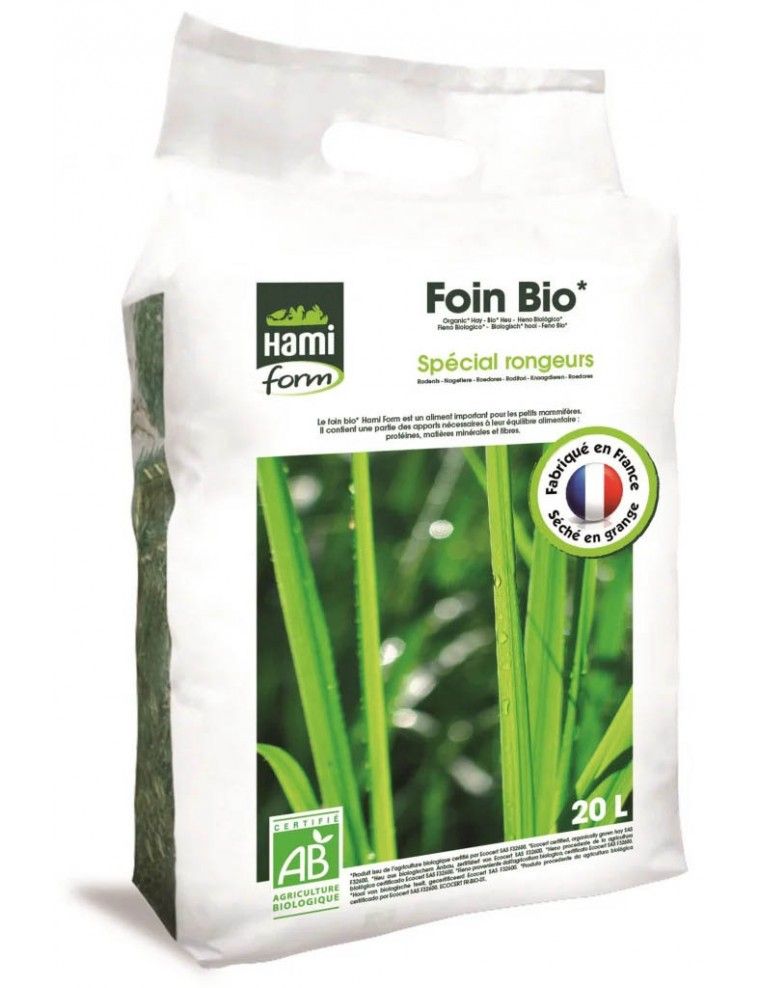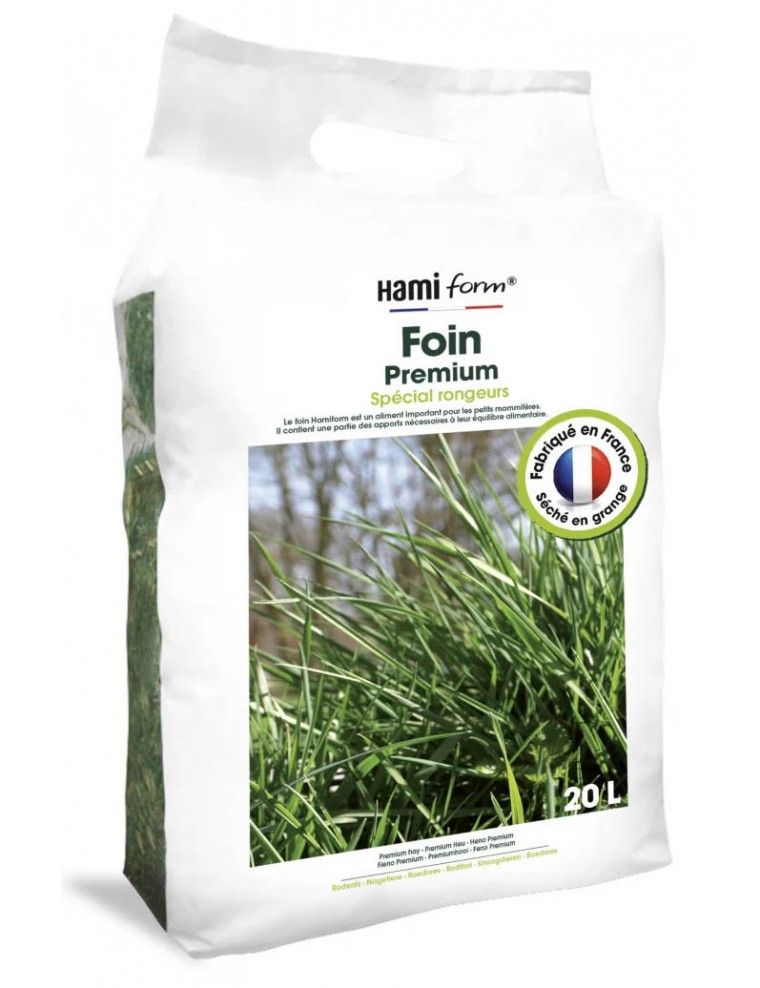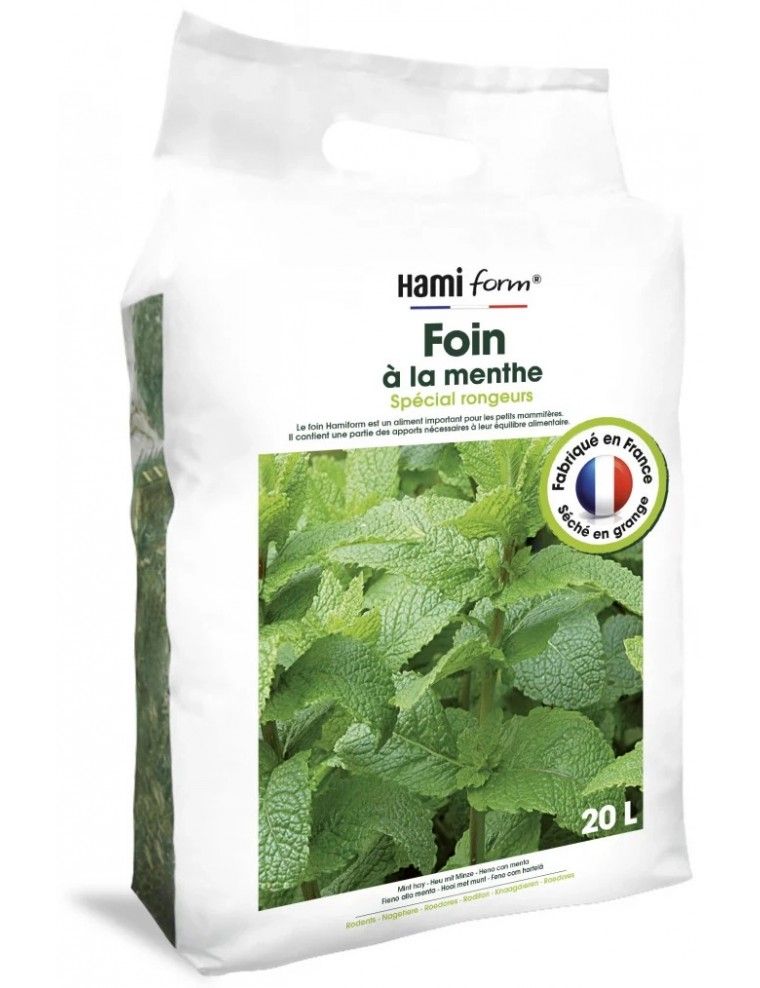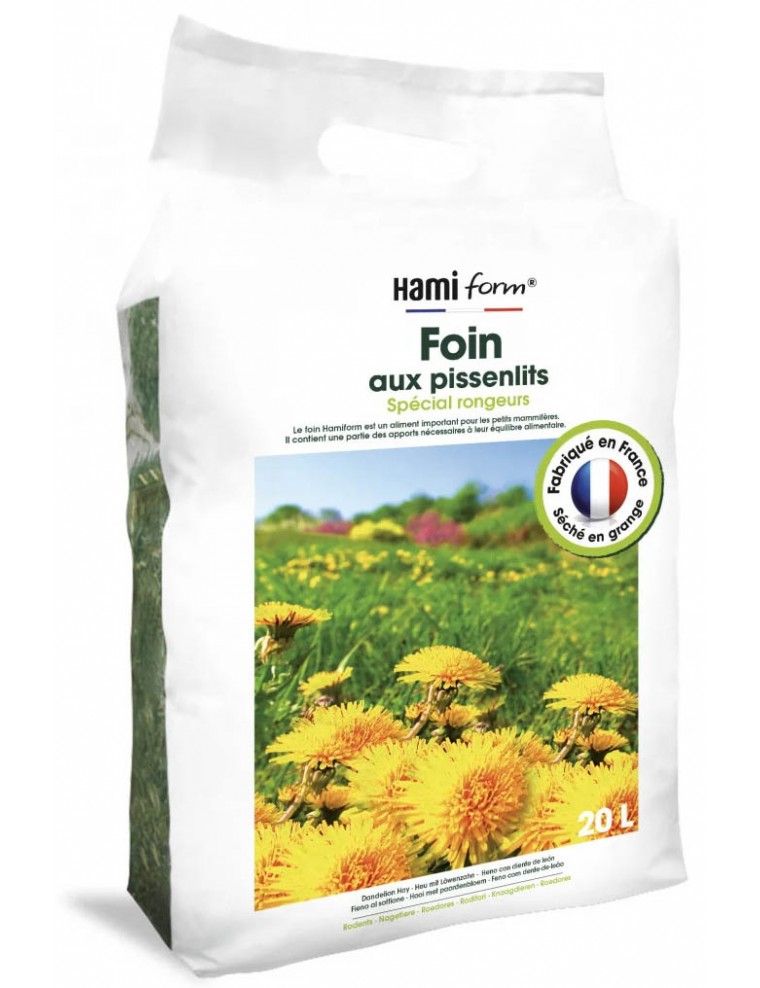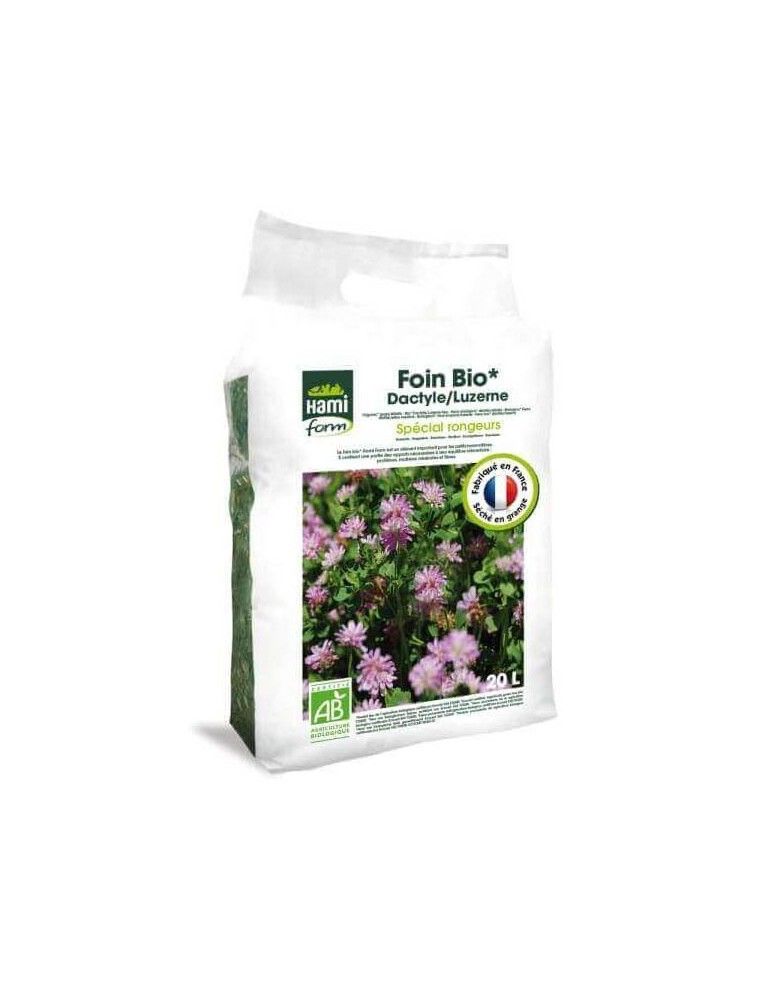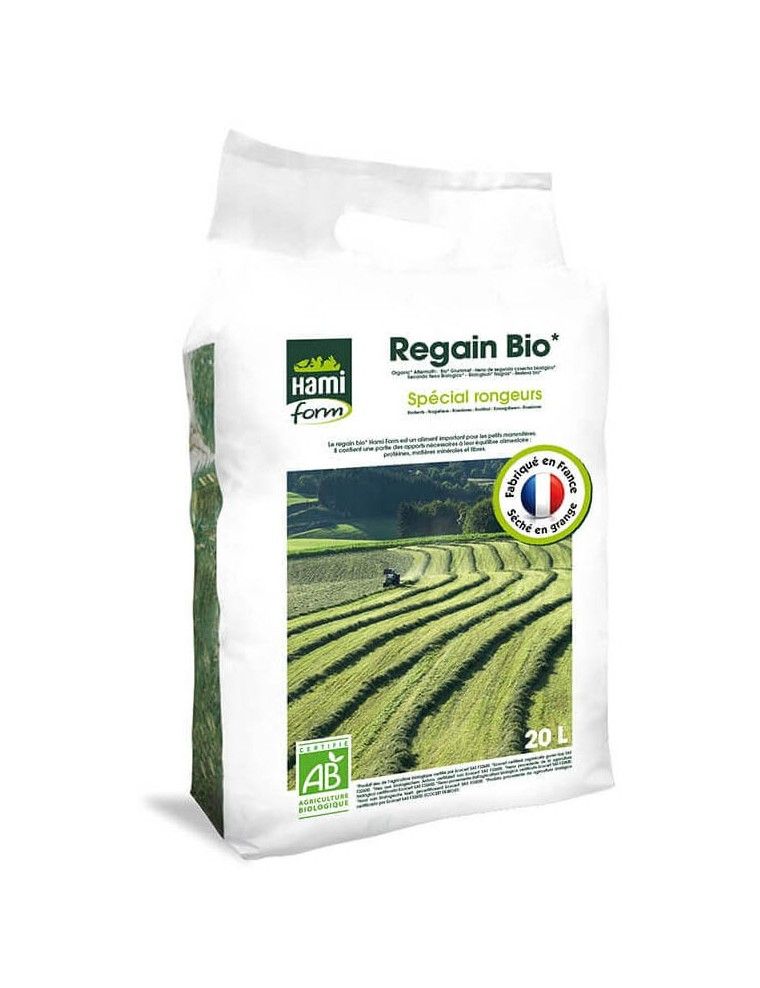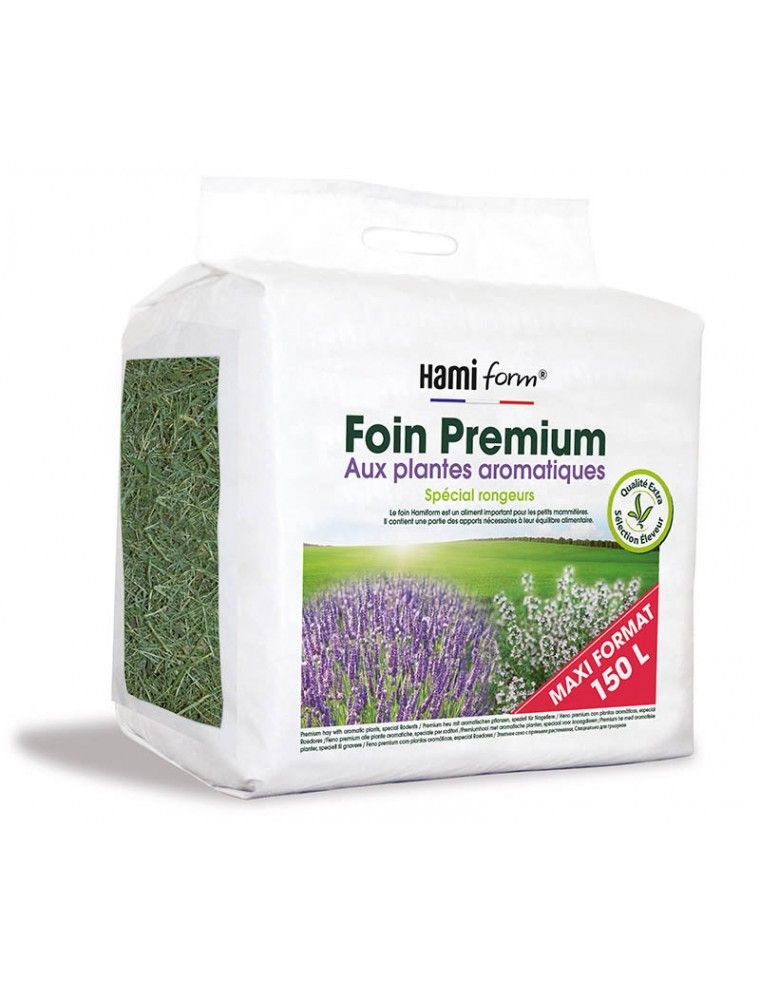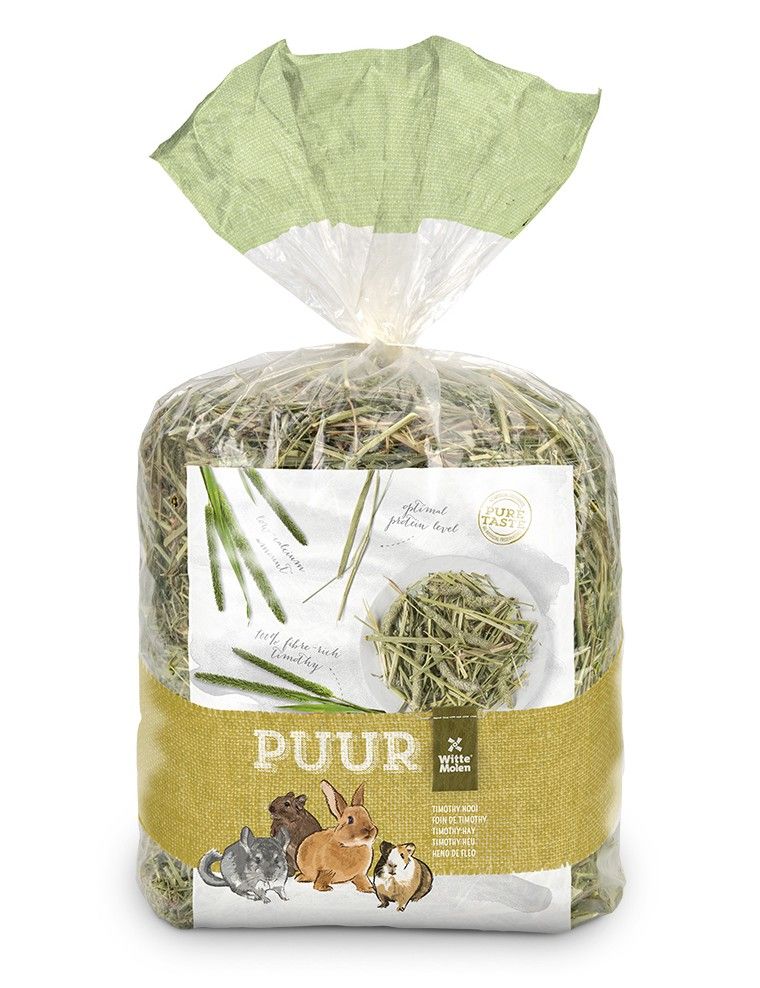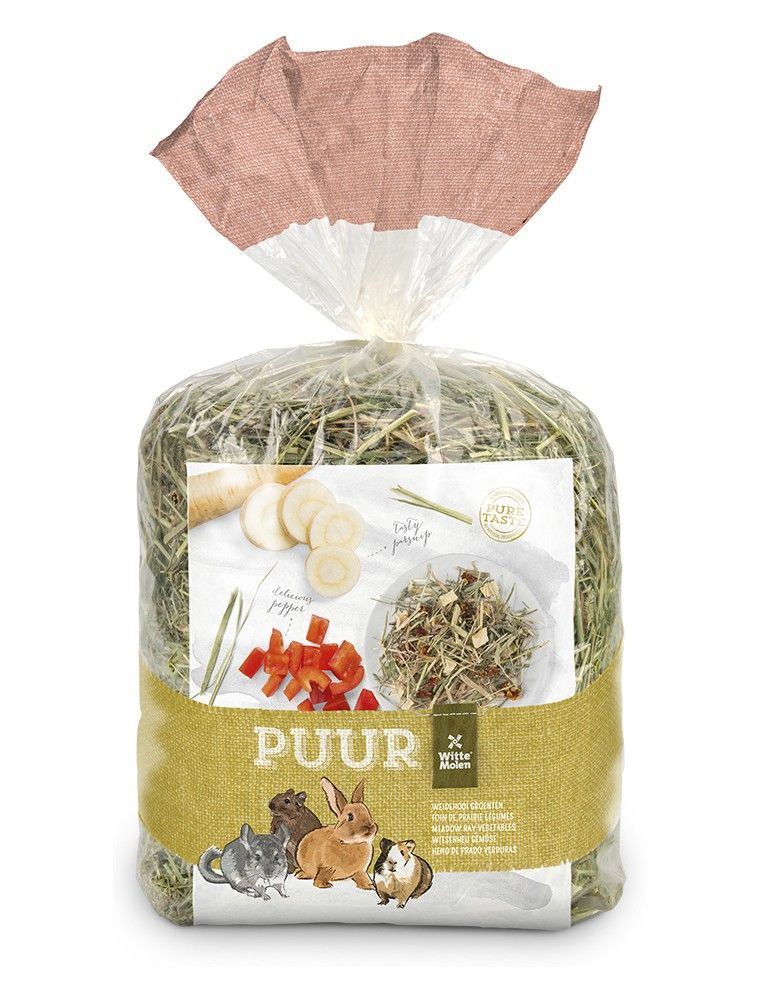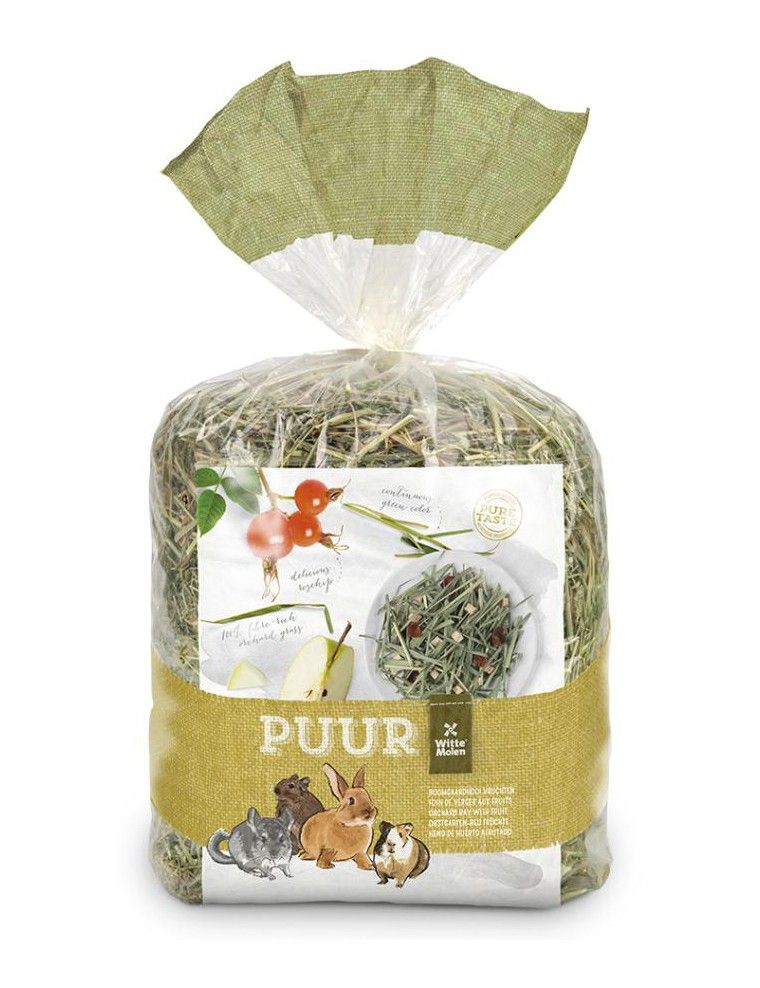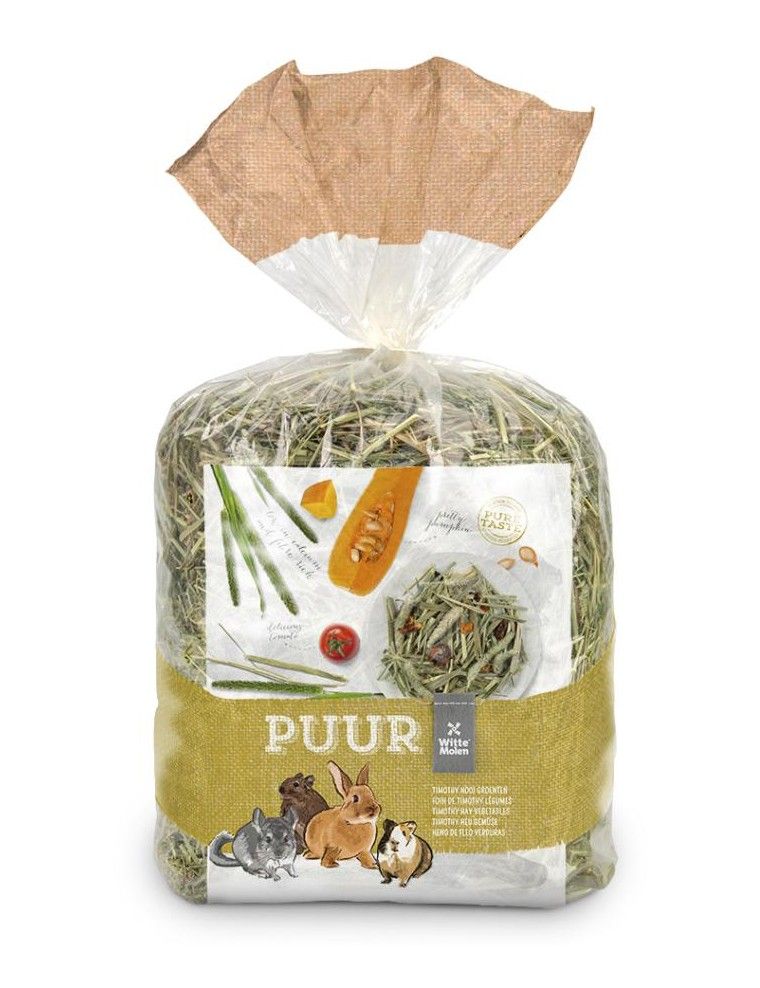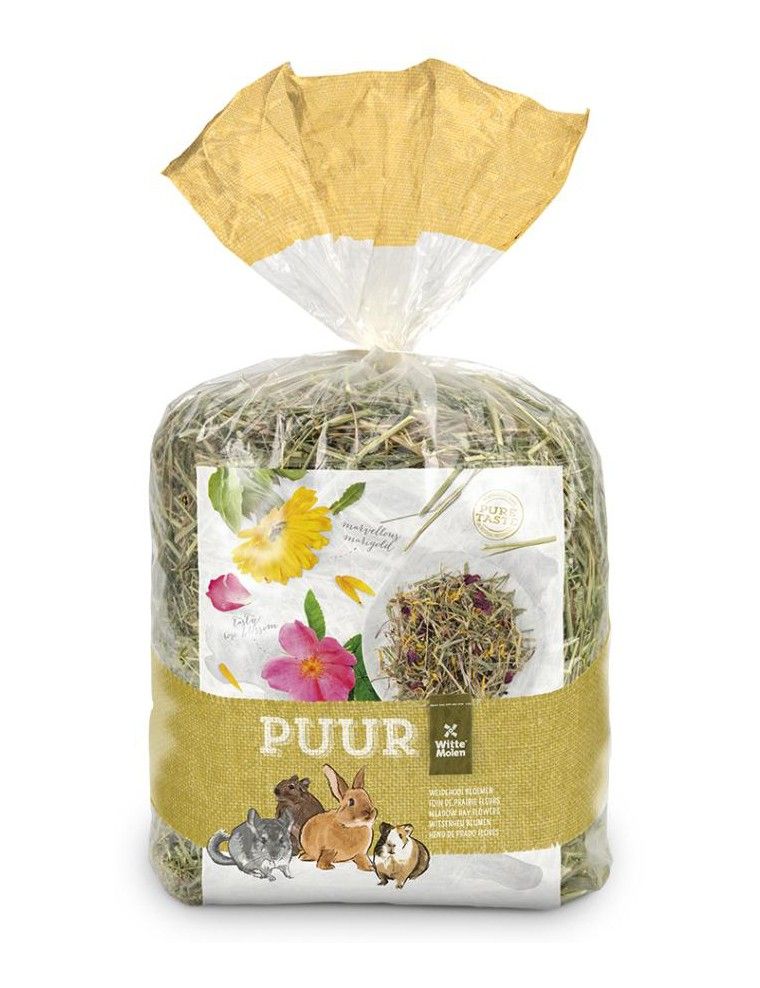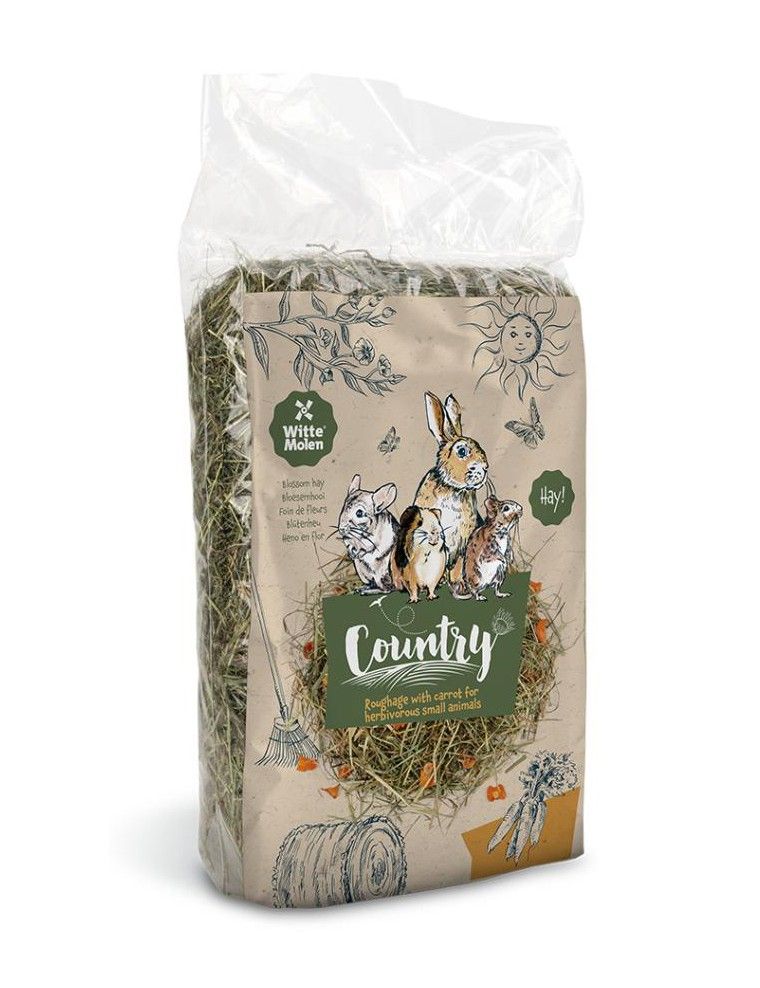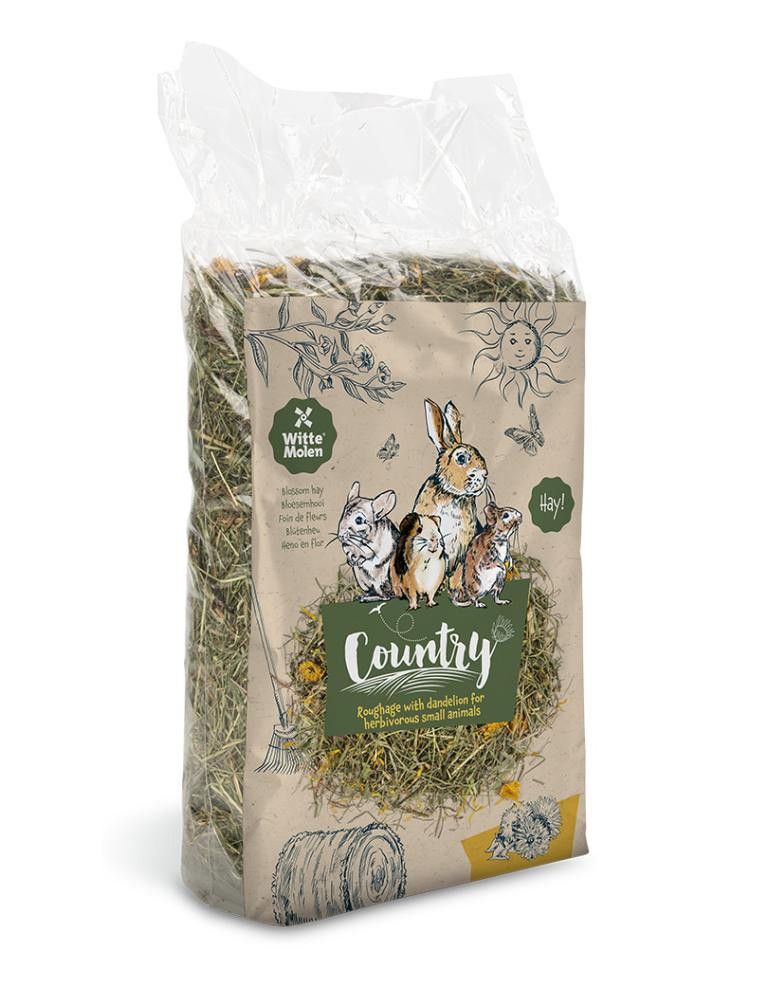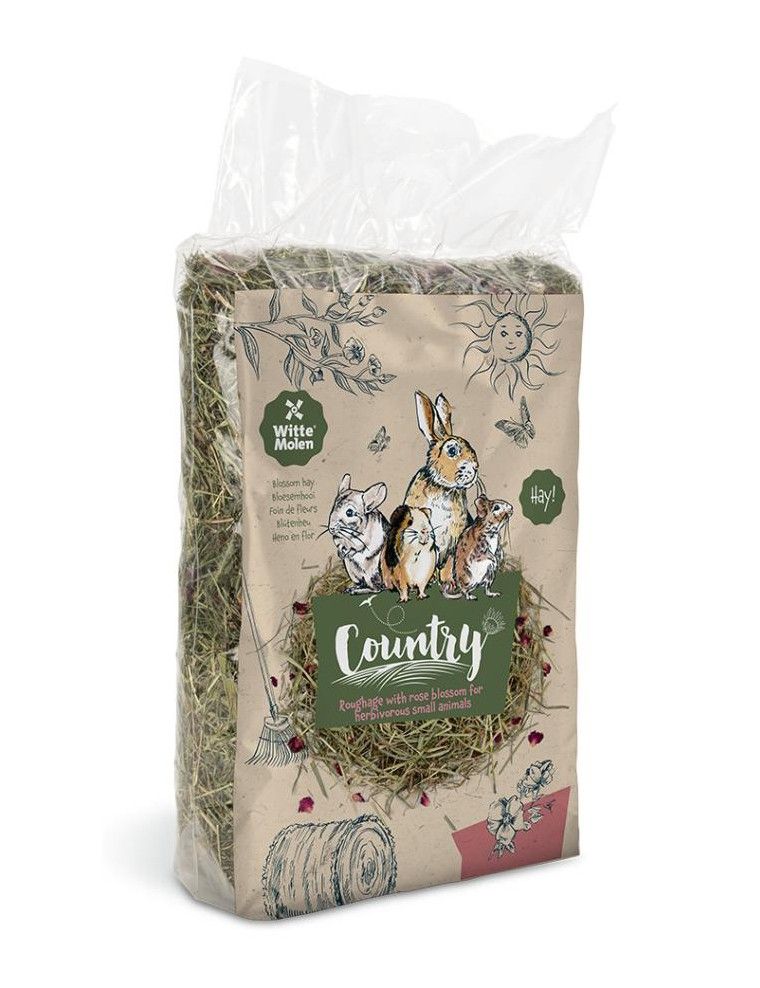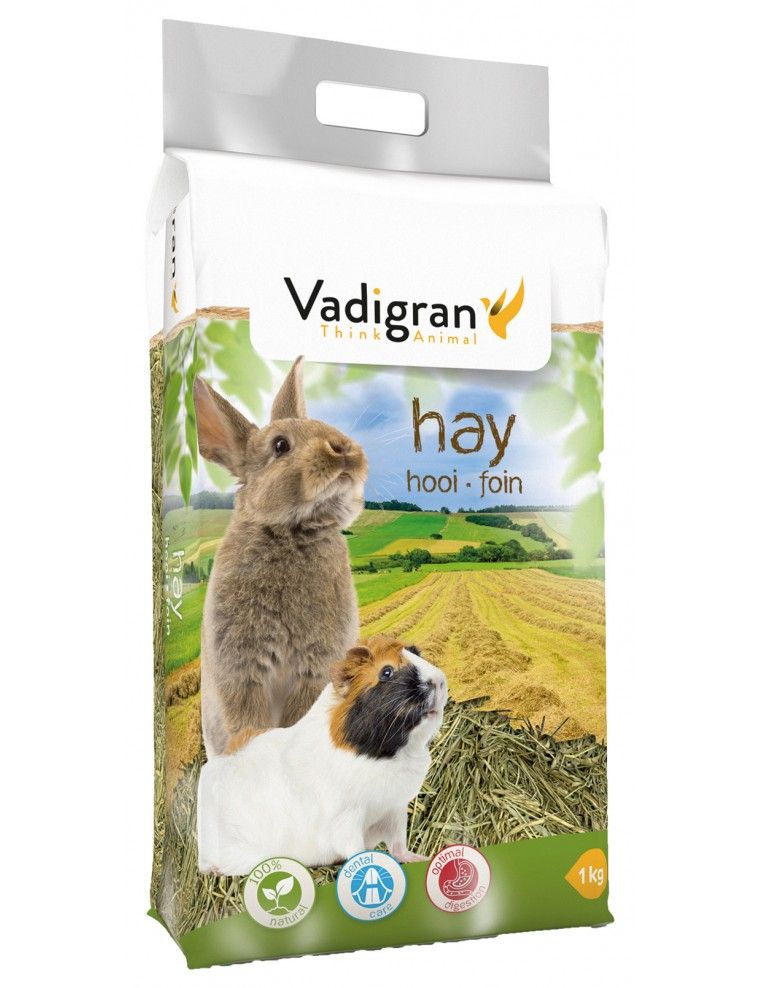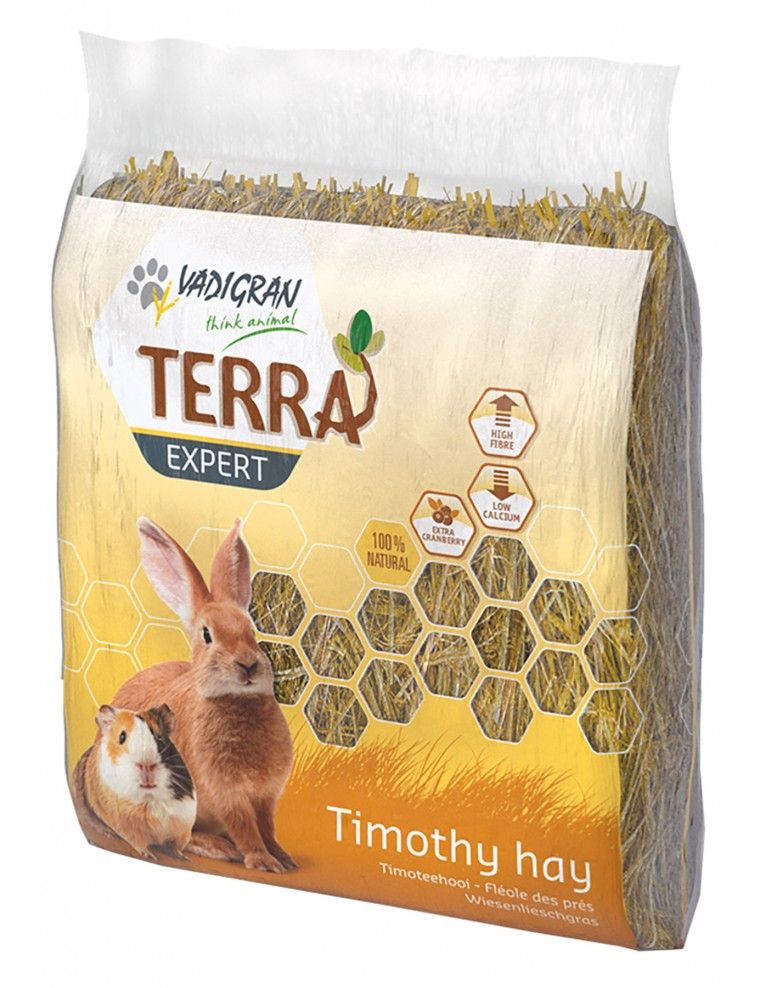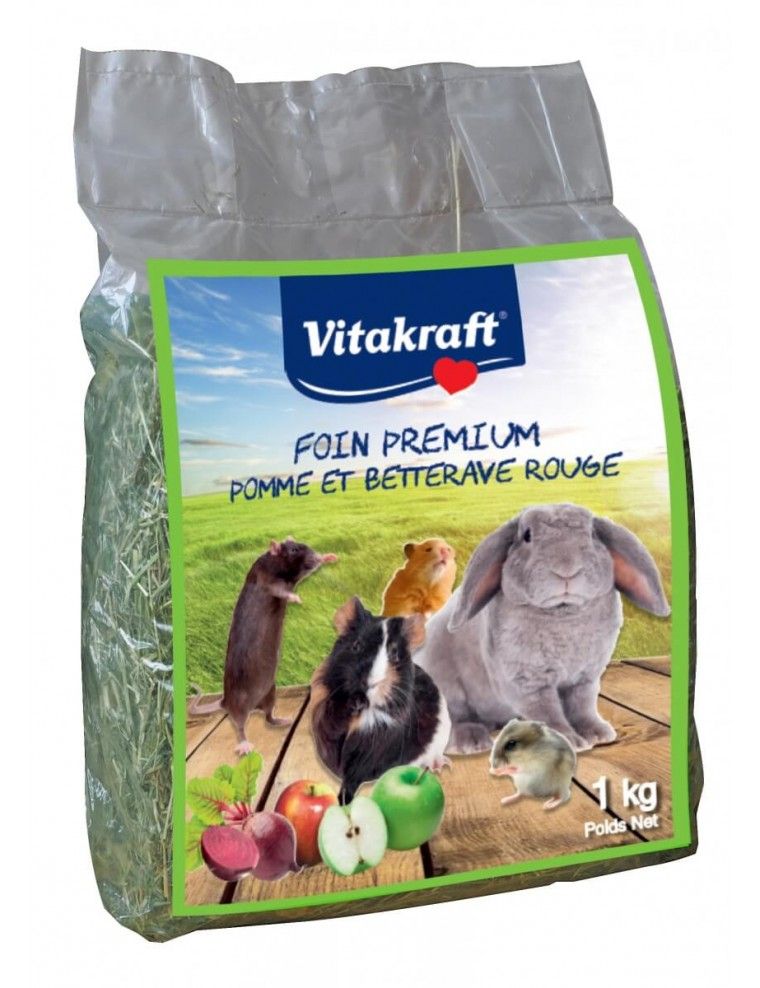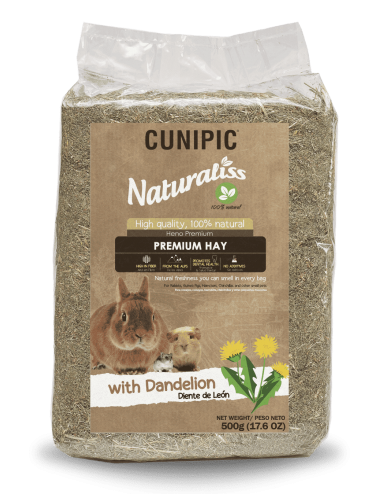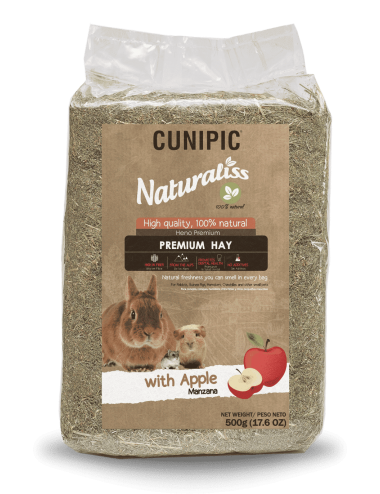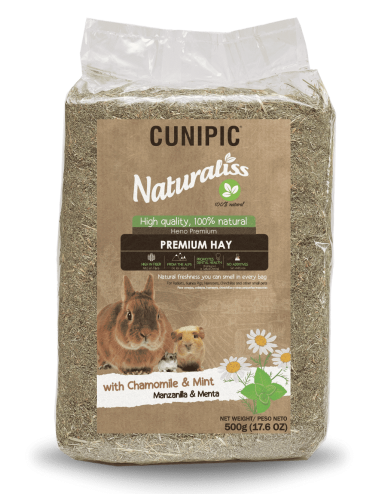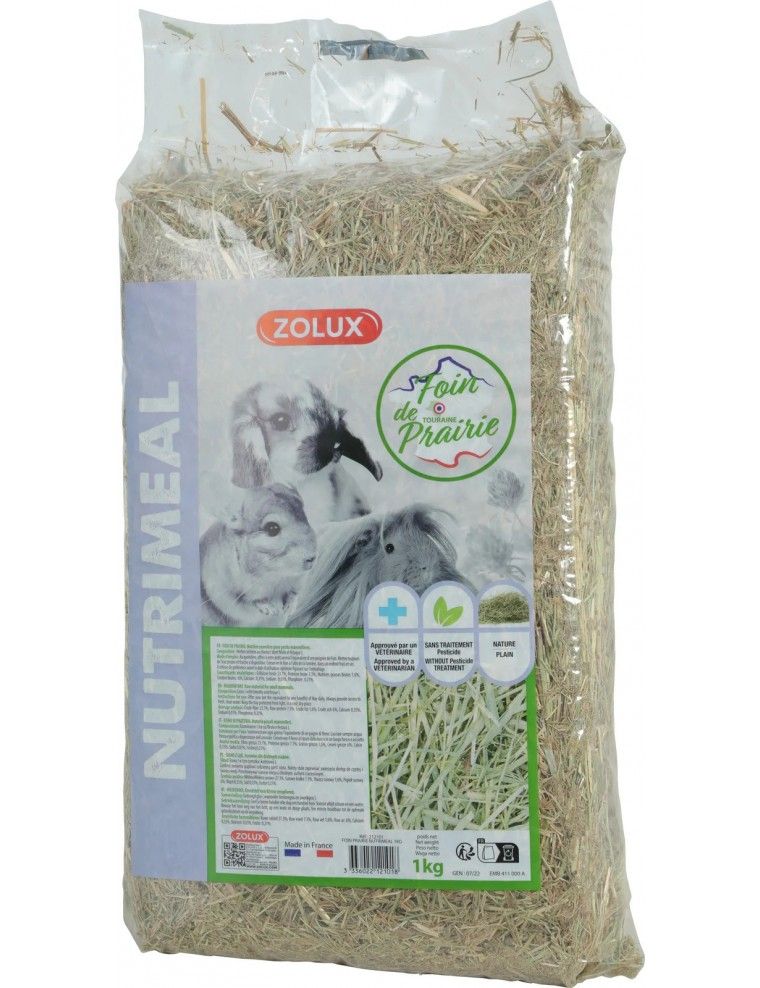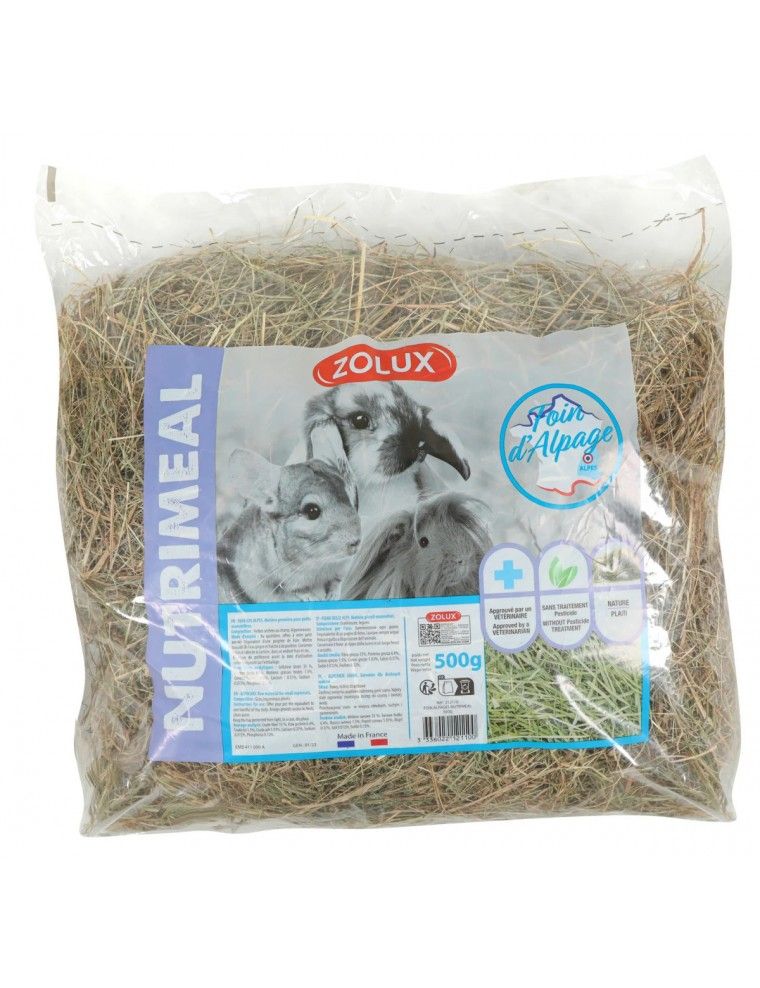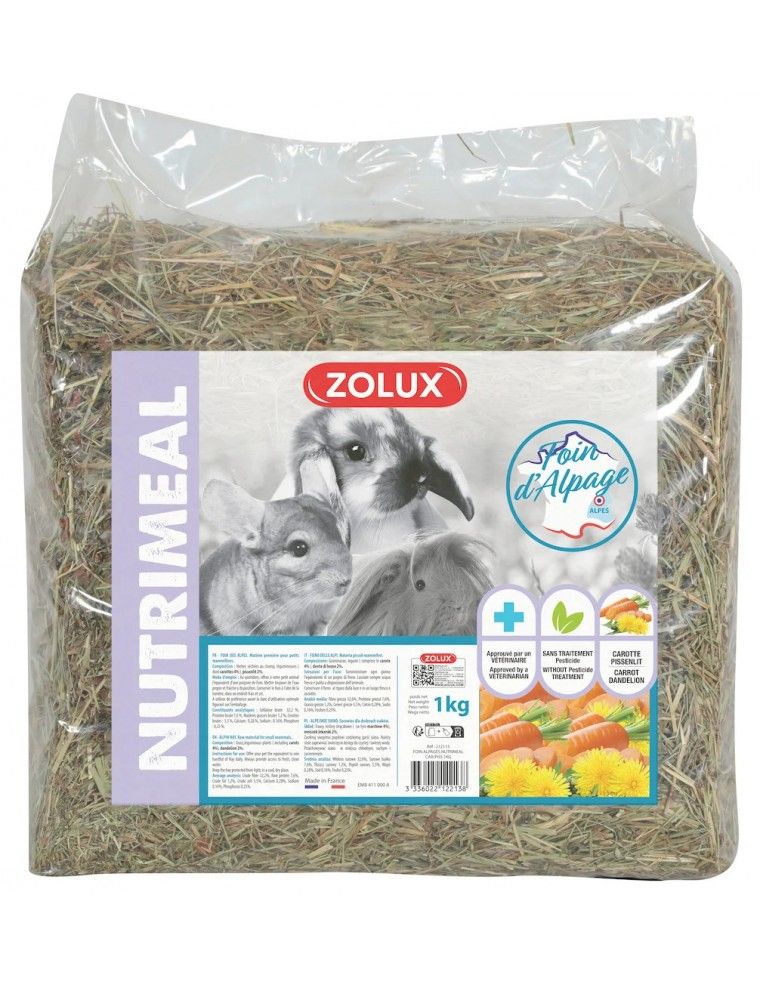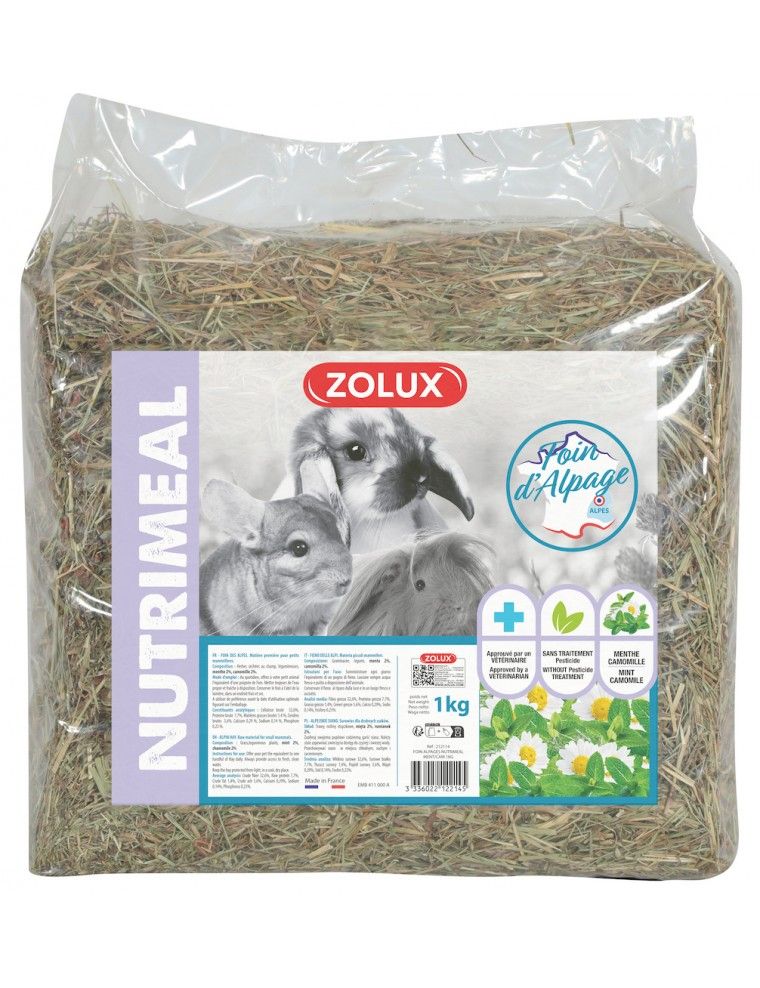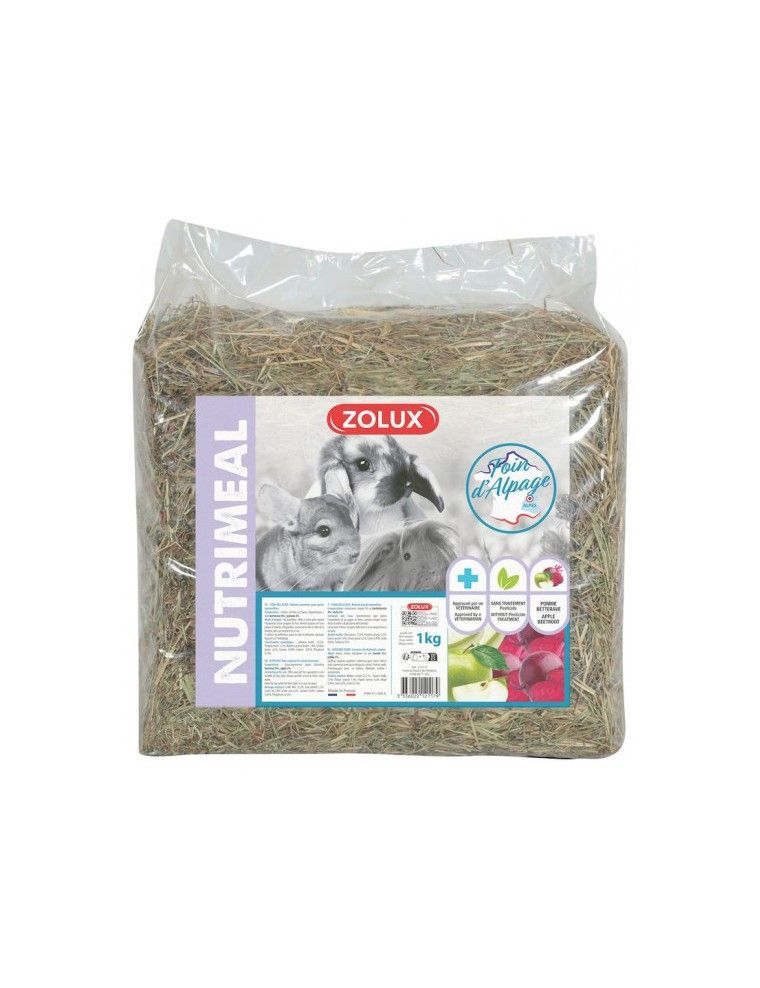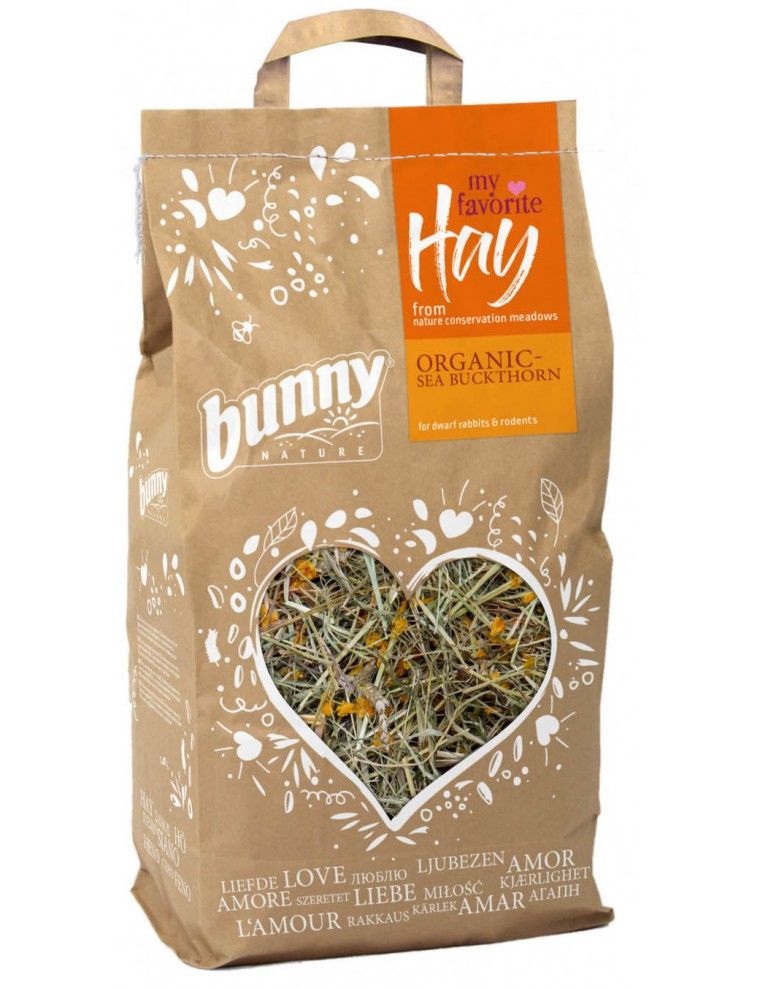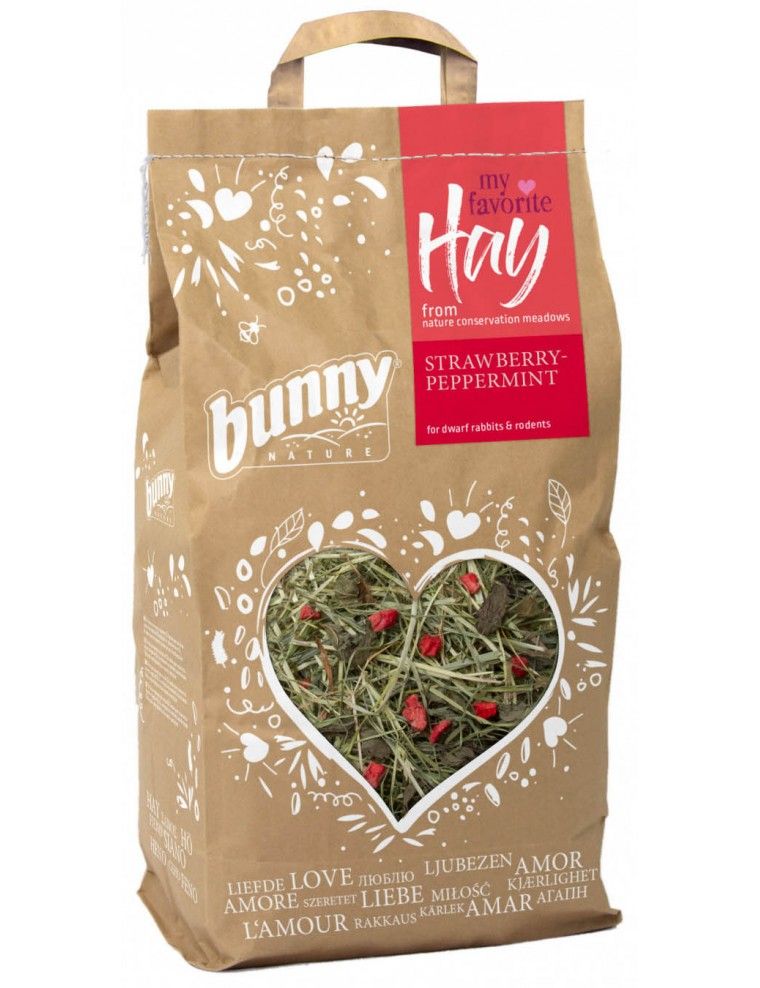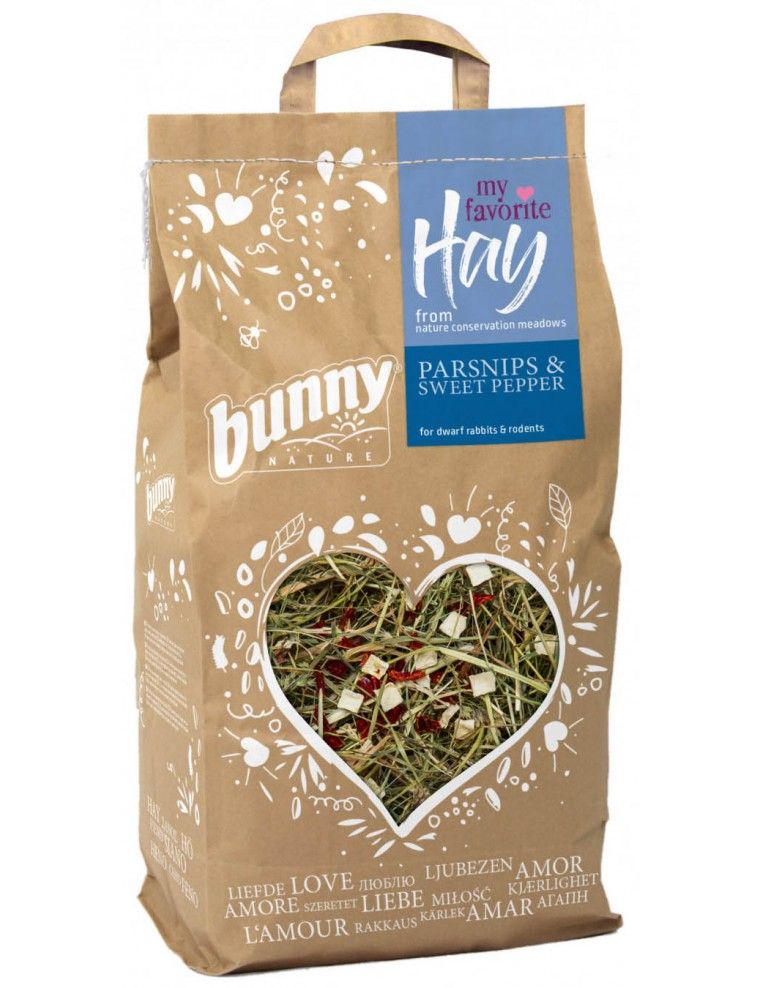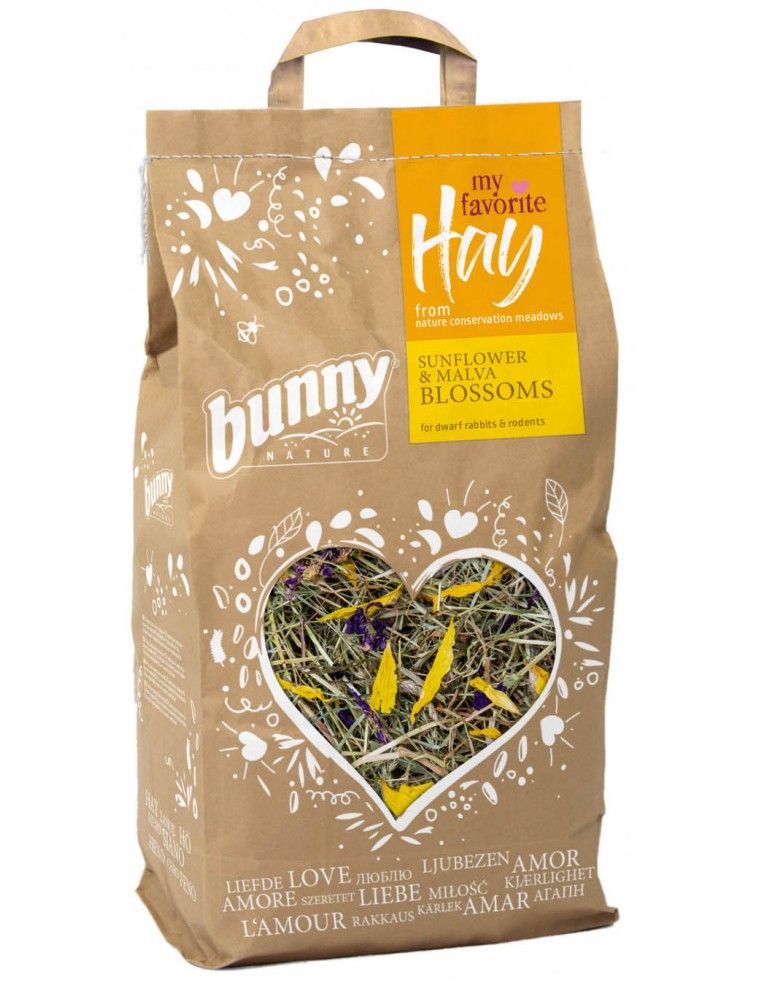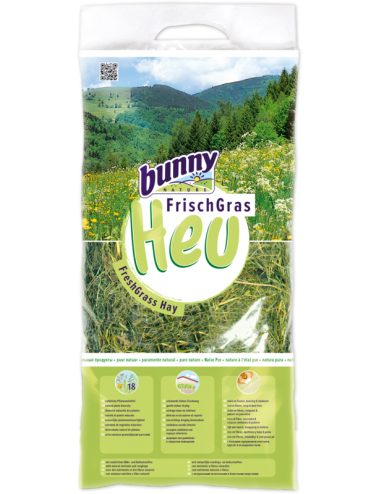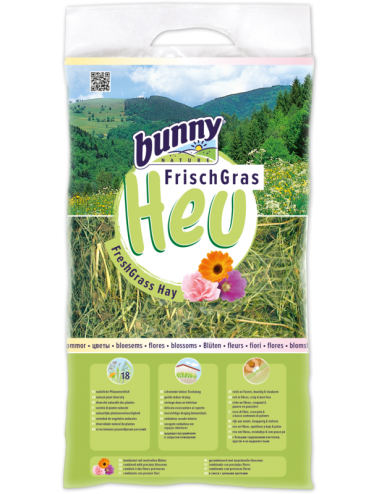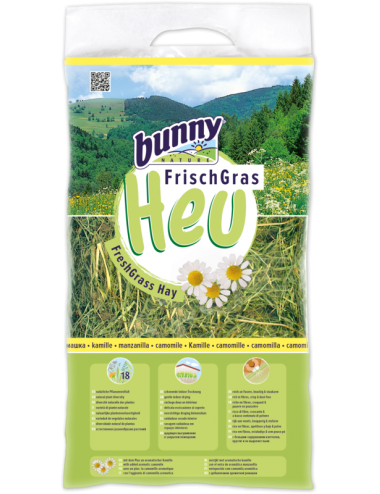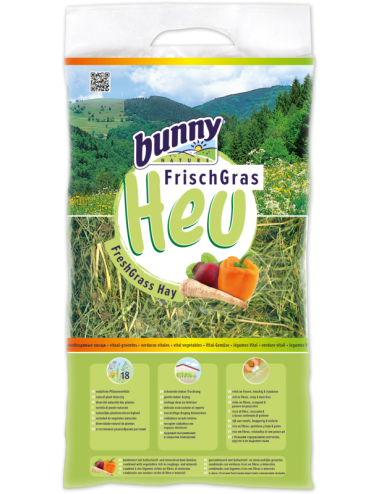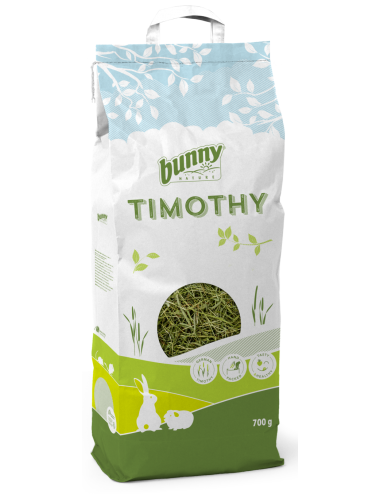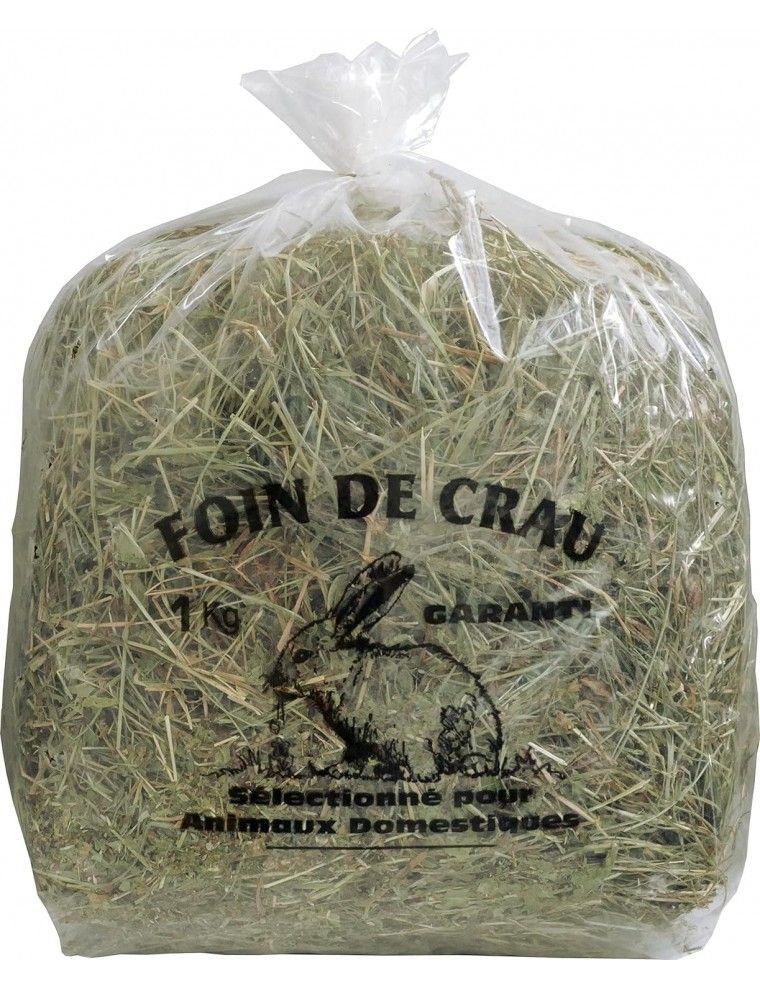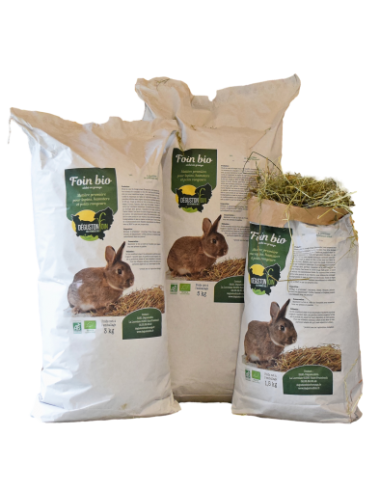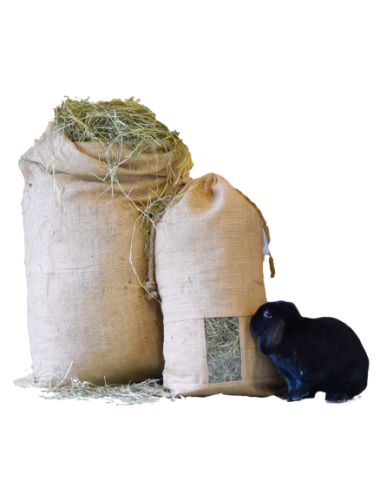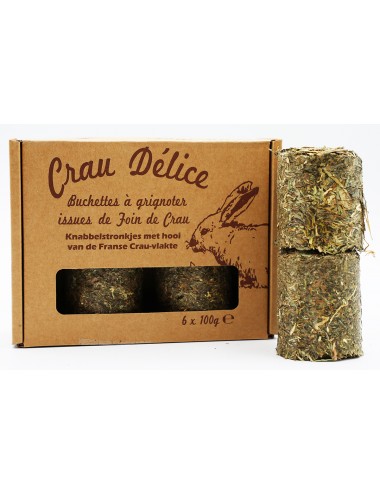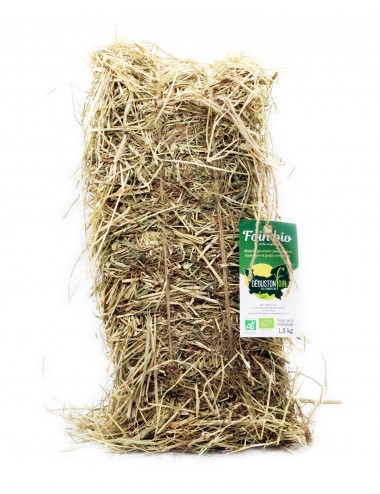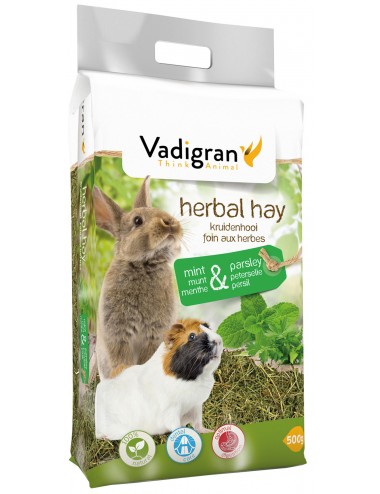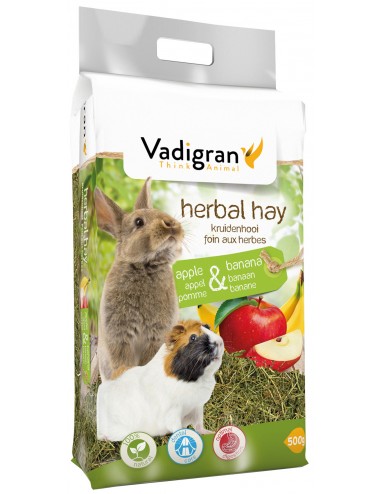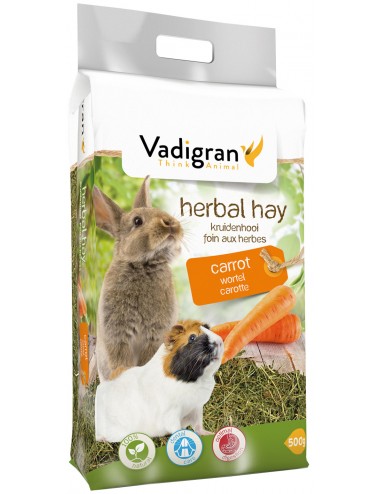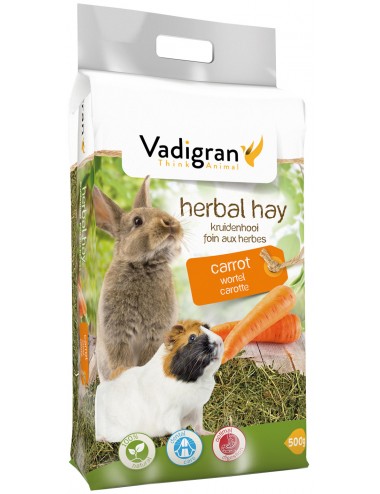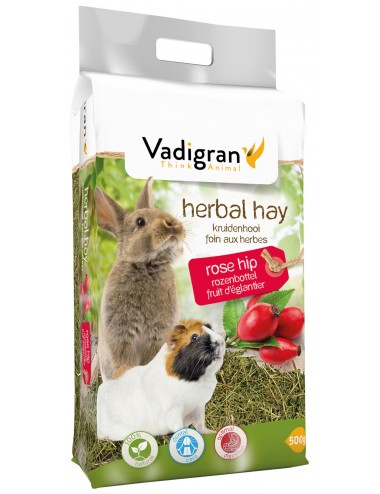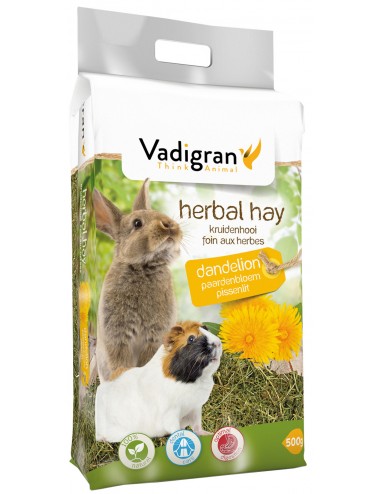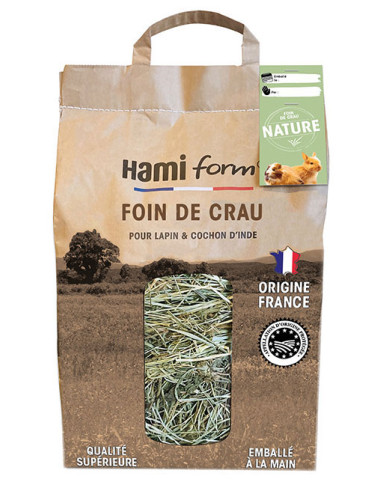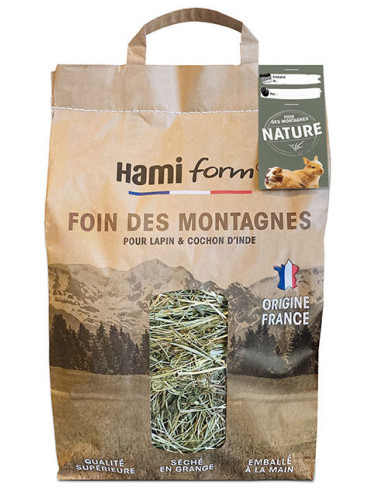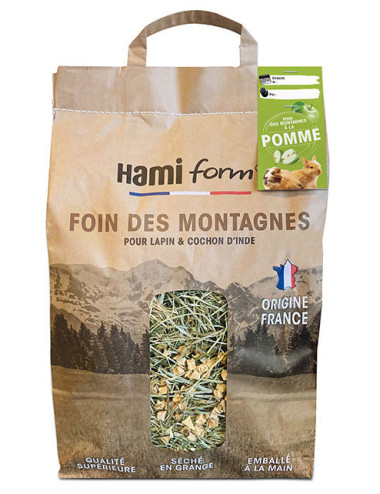- in replenishment
Hay Octodon
Hay: Pillar of your Octodon's diet
Hay is not just part of the octodon's diet, it is its fundamental basis. Rich in fiber, it supports the weak digestive system of these small herbivores, allowing optimal progression of food through their intestine. At Le Petit Rongeur, we understand this vital necessity and offer a selection of high-quality hay from brands like Bunny Nature , Hamiform , and Zolux . Perfect for meeting gnawing needs and contributing to good dental health, hay should be available in unlimited quantities for your degu, contrasting with the moderation required for pellets and other types of food.
Choosing the Right Hay: Quality and Diversity
Degu hay should be fresh, crisp and free of mold to ensure not only an enjoyable but also a safe feeding experience. Our selected brands ensure these qualities, offering hay rich in plant diversity from untreated natural reserves, where the presence of poisonous plants is scrupulously controlled. This diversity not only promotes digestive health through optimal fermentation in the octodon's appendage, but also satisfies their instinctive need to gnaw, essential for the natural wear of their teeth.
Hay: More Than Food, A Daily Necessity
Beyond its nutritional role, hay plays a crucial part in the daily life of your degu, providing both a substrate for their gnawing activities and an essential element for healthy digestion. Available in unlimited quantities, it encourages degus to adopt natural eating behavior, characterized by taking numerous small portions throughout the day. Our range, including varied options in textures and compositions, is specially designed to stimulate their interest and satisfy their nutritional and behavioral needs.
A Commitment to the Well-being of Your Octodon
At Le Petit Rongeur, our commitment to the health and well-being of your degu is reflected in the quality of our hay selection. We choose our products carefully, ensuring that they are not only nourishing and conducive to good dental health, but also free from anything that could harm your pet. By providing your degu with high quality hay, you directly contribute to its daily well-being, thus promoting a long and happy life.
Hay
Hay: Pillar of your Octodon's diet
Hay is not just part of the octodon's diet, it is its fundamental basis. Rich in fiber, it supports the weak digestive system of these small herbivores, allowing optimal progression of food through their intestine. At Le Petit Rongeur, we understand this vital necessity and offer a selection of high-quality hay from brands like Bunny Nature , Hamiform , and Zolux . Perfect for meeting gnawing needs and contributing to good dental health, hay should be available in unlimited quantities for your degu, contrasting with the moderation required for pellets and other types of food.
Choosing the Right Hay: Quality and Diversity
Degu hay should be fresh, crisp and free of mold to ensure not only an enjoyable but also a safe feeding experience. Our selected brands ensure these qualities, offering hay rich in plant diversity from untreated natural reserves, where the presence of poisonous plants is scrupulously controlled. This diversity not only promotes digestive health through optimal fermentation in the octodon's appendage, but also satisfies their instinctive need to gnaw, essential for the natural wear of their teeth.
Hay: More Than Food, A Daily Necessity
Beyond its nutritional role, hay plays a crucial part in the daily life of your degu, providing both a substrate for their gnawing activities and an essential element for healthy digestion. Available in unlimited quantities, it encourages degus to adopt natural eating behavior, characterized by taking numerous small portions throughout the day. Our range, including varied options in textures and compositions, is specially designed to stimulate their interest and satisfy their nutritional and behavioral needs.
A Commitment to the Well-being of Your Octodon
At Le Petit Rongeur, our commitment to the health and well-being of your degu is reflected in the quality of our hay selection. We choose our products carefully, ensuring that they are not only nourishing and conducive to good dental health, but also free from anything that could harm your pet. By providing your degu with high quality hay, you directly contribute to its daily well-being, thus promoting a long and happy life.
- 10 in stock
- 6 in stock
- 16 in stock
- in replenishment
- in replenishment
- in replenishment
- 10 in stock
- 20 in stock
- 15 in stock
- 16 in stock
- 20 in stock
- 17 in stock
- 20 in stock
- 5 in stock
- 30 in stock
- 31 in stock
- 19 in stock
- 28 in stock
- 20 in stock
- 9 in stock
- 3 in stock
- 7 in stock
- 5 in stock
- 10 in stock
- 1 in stock
- in replenishment
- 2 in stock
- in replenishment
- 7 in stock
- 5 in stock
- 1 in stock
- 4 in stock
- in replenishment
- in replenishment
- in replenishment
- in replenishment
- in replenishment
- in replenishment
- in replenishment
- in replenishment
- in replenishment
- in replenishment
- 14 in stock
- 30 in stock
- 4 in stock
- in replenishment
- 14 in stock
- 1 in stock
- in replenishment
- 2 in stock
- 2 in stock
- 2 in stock
- in replenishment
- 12 in stock
- 1 in stock
- 10 in stock
Questions / Réponses
Le foin est essentiel dans l'alimentation des octodons domestiques car il fournit la fibre nécessaire pour maintenir une bonne santé digestive et prévenir les problèmes gastro-intestinaux. La mastication constante du foin aide également à l'usure naturelle des dents, qui poussent continuellement tout au long de leur vie. Un apport suffisant en foin stimule l'activité physique et mentale, contribuant au bien-être général de l'octodon. C'est un élément non négociable pour une alimentation équilibrée et saine.
Le foin de fléole est souvent recommandé comme le meilleur choix pour les octodons en raison de sa richesse en fibres et de sa faible teneur en calcium, ce qui est idéal pour leur système digestif et pour prévenir la formation de calculs urinaires. Cependant, varier les types de foin, comme le foin d'avoine, de luzerne (pour les jeunes ou les octodons en gestation/nursing en raison de sa teneur plus élevée en calcium), et d'herbes mélangées, peut contribuer à une alimentation diversifiée et stimulante.
Un octodon doit avoir un accès constant au foin, le foin devant constituer la majorité de son régime alimentaire. Bien qu'il soit difficile de mesurer une quantité exacte en raison de leur consommation variable, une bonne règle générale est de s'assurer qu'ils ont toujours du foin frais à disposition. Surveillez la quantité de foin consommée et ajustez en fonction des besoins individuels de l'animal, en veillant à ce que le foin reste propre et sec.
Pour conserver le foin frais et appétissant pour les octodons, stockez-le dans un endroit frais et sec, à l'abri de la lumière directe du soleil et de l'humidité. Utilisez un conteneur de stockage qui permet une circulation d'air suffisante pour éviter la moisissure ou la fermentation. Évitez de stocker le foin dans des sacs en plastique fermés. Vérifiez régulièrement l'état du foin et retirez toute partie qui semble moisie, humide ou décolorée avant de le donner à votre octodon.
Le foin peut et devrait être donné à volonté aux octodons. Il n'y a pas de limite à la quantité de foin que vous pouvez offrir, car il joue un rôle crucial dans leur santé digestive et dentaire. Assurez-vous que votre octodon a toujours accès à du foin frais et propre. Le foin à volonté aide à prévenir l'ennui et assure une activité constante de mastication, essentielle pour l'usure dentaire.
Les signes d'un foin de mauvaise qualité incluent une couleur terne ou jaunie, une odeur de moisissure ou de fermentation, et une texture extrêmement sèche ou poussiéreuse. Un bon foin devrait avoir une couleur verte vibrante, une odeur fraîche et agréable, et une texture souple. Évitez d'offrir du foin qui contient des débris, des insectes, ou tout autre contaminant, car cela pourrait nuire à la santé de votre octodon.
Pour introduire un nouveau type de foin dans l'alimentation d'un octodon, commencez par mélanger une petite quantité du nouveau foin avec le type actuel. Augmentez progressivement la proportion du nouveau foin sur plusieurs jours, permettant ainsi à votre octodon de s'adapter au goût et à la texture différents. Cette transition graduelle peut aider à éviter les troubles digestifs et à encourager l'acceptation du nouveau foin.
Si un octodon refuse de manger du foin, il est crucial d'identifier la cause - cela peut être dû à un problème de santé sous-jacent nécessitant une attention vétérinaire. Pendant que vous cherchez une solution, vous pouvez essayer des pellets de foin compressé ou des friandises à base de foin pour stimuler leur intérêt. Cependant, ces alternatives ne devraient pas remplacer le foin dans leur régime, car la mastication du foin en brins longs est essentielle pour leur santé dentaire et digestive. Consulter un vétérinaire peut aider à résoudre les problèmes d'alimentation.
